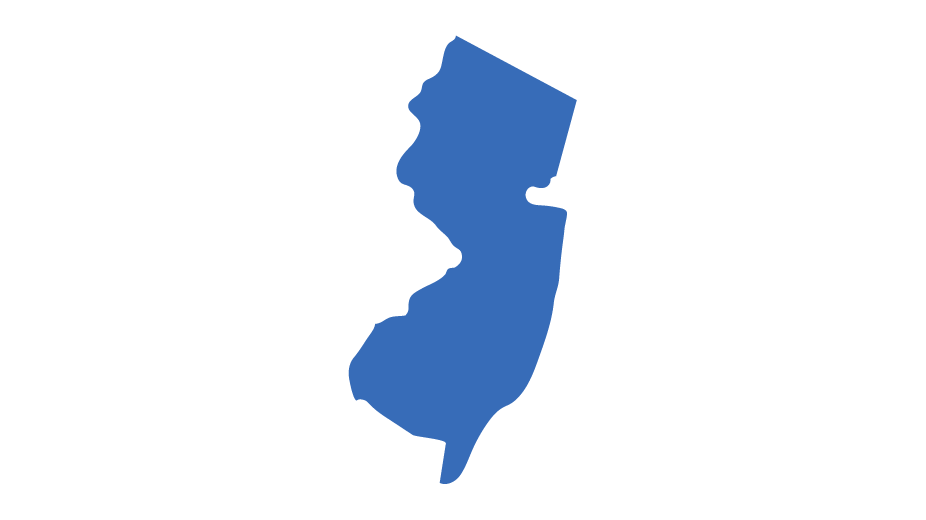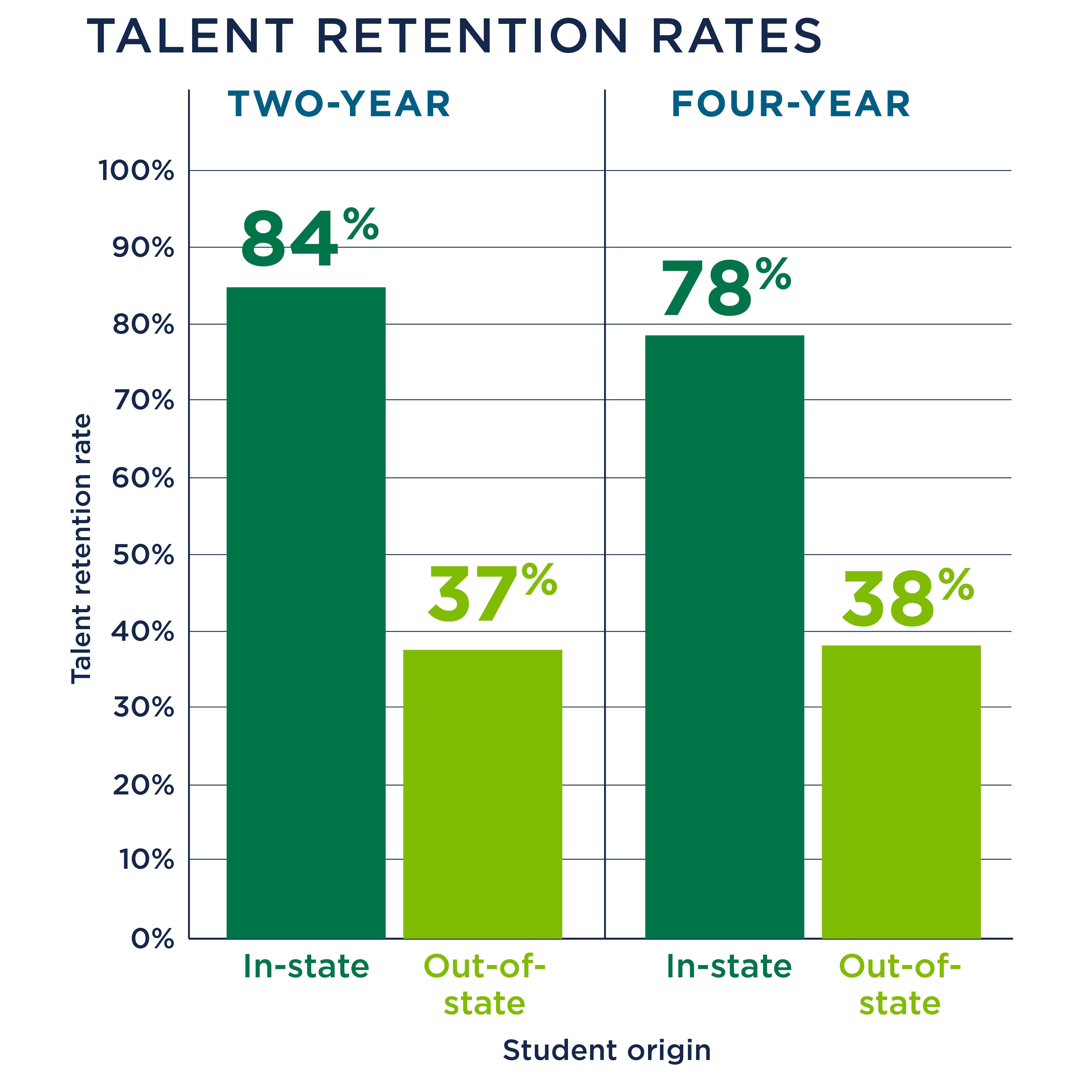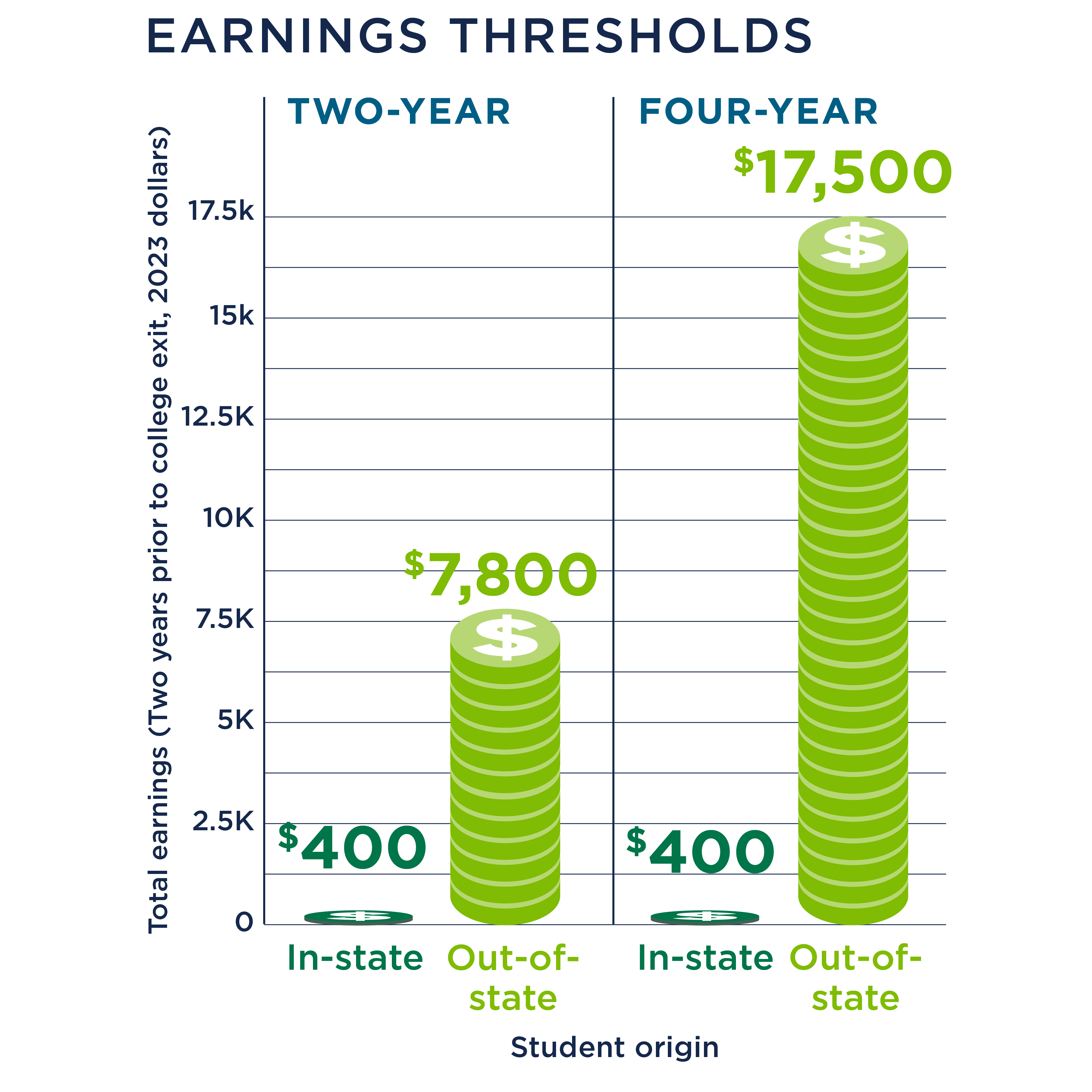Keeping Students
in Nebraska


In Nebraska, three students stood at a crossroads.
Sarah, an in-state student, felt a deep connection to her home in Nebraska. Emily, an out-of-state student from New Jersey, faced the challenge of integrating into a new environment while pursuing her goals. Marcus, hailing from Chicago, Illinois, longed for a new opportunity but wanted to stay in the Midwest.



Sarah: The Local Connection
Sarah was born and raised in Nebraska. Her family had deep roots in the state—her parents owned a small farm outside a large city, and her grandparents had both been educators in her local high school. As she enrolled at Nebraska Community College, she felt secure knowing her connections would bolster her future. She majored in manufacturing automation, a field well-respected in her community.
During her studies, Sarah secured a summer internship with a local manufacturing company. The experience was transformative. Not only did she earn a good wage that summer, but she also built relationships with her co-workers and mentors. They guided her through her studies and offered insights into career opportunities within the state.
By the time college graduation arrived, Sarah had already received a job offer from the company where she interned. With her solid social ties and professional experience, staying in Nebraska felt natural. She accepted the offer, contributing to the local economy and fulfilling her dream of helping her community thrive.



Emily: The Newcomer’s Challenge
Emily’s journey was more complex. Arriving from New Jersey, she felt a culture shock at Nebraska College, where she majored in government and public administration. She quickly realized that many of her classmates had already established networks, making her feel like an outsider.
She wanted to apply for internships in the summer after her sophomore year but in her field of study there were no positions available. Emily continued in her classes the following fall but had few social connections.
When graduation day arrived, Emily had a choice to make. Lacking the bonds that anchored her to the community, she decided to return to New Jersey. Her decision reflected not only ties to her home state but also a lack of work opportunities during her time in college.



Marcus: The Outsider Looking In
In contrast, Marcus was familiar with Nebraska, having spent several summers there with his grandma when he was younger. The son of a tech entrepreneur, he was also drawn to the state’s burgeoning silicon prairie tech scene. However, while majoring in computer science at Nebraska College, he struggled with feelings of loneliness. His Chicago friends were enjoying life back at home, and he missed the familiar setting.
Despite his doubts, Marcus sought local jobs to forge new connections. During his junior year of college, he landed a part-time job at a local technology company. Throughout the semester and into the summer he earned over $15,000 which helped him pay for educational and living expenses. The experience shifted his perspective; he found a supportive community of co-workers who became friends. These connections led to a great love for the state of Nebraska.
Graduation approached, and with it, a decision loomed. Marcus weighed his options: return to his home state of Illinois or stay in Nebraska. The money he earned and the friendships he forged through his part-time job made the decision more arduous. After much thought, he chose to remain in Nebraska, accepting a full-time offer at the technology company where he worked.


The Impact of Connections
As the years went by, the different pathways of Sarah, Emily, and Marcus became emblematic of a broader trend in Nebraska’s workforce. Sarah thrived as a local, rooted in her community. Without work experience, Emily struggled to find her place within the state. Marcus, although initially hesitant, transformed his learning and earning experiences into strong connections to Nebraska, ultimately contributing to its growth.
Their stories illustrate the importance of social ties and work experiences in shaping talent retention. As Nebraska continues to develop its workforce, fostering connections—through work experiences and personal relationships—is key to securing the state’s future.
Nebraska Data
Talent Retention
Talent retention refers to students staying and working in Nebraska after graduating from college. The origin of students (in-state or out-of-state) is predictive of whether they will work in Nebraska after graduating from a Nebraska public postsecondary institution, for both two-year and four-year colleges. The talent retention rate among two-year college graduates is 84 percent for in-state graduates and 37 percent for out-of-state graduates. The talent retention rate among four-year college graduates is 78 percent for in-state graduates and 38 percent for out-of-state graduates.
Prior Meaningful Work Experience
Giving students opportunities to work in Nebraska—like internships or part-time jobs—during the two years before they graduate college is important for keeping talented people in the state. NSWERS found that if students earn a certain amount during this time, there's at least a 50 percent chance they'll stay in Nebraska after graduating. These amounts are:
• About $400 for in-state students at two-year colleges
• About $400 for in-state students at four-year colleges
• About $7,800 for out-of-state students at two-year colleges
• About $17,500 for out-of-state students at four-year colleges
Social and Economic Ties
Work experience in Nebraska can help keep graduates in the state because it helps them build social and economic ties. While working, students form relationships with coworkers, employers, and the community, and they also earn income. These social and economic connections can lead to good job opportunities in Nebraska after they graduate. College students from Nebraska are also more likely to remain in the state compared to out-of-state students. To learn more about the impact of student origin and work experience on students’ decisions to stay in the state, read the NSWERS Brief on Talent Retention in Nebraska.

While fictional in nature, this visual story is based on real Nebraska data and analysis provided by NSWERS.
The Nebraska Statewide Workforce & Educational Reporting System (or NSWERS), is an interlocal agency with member representatives from Nebraska’s six Community Colleges, the Nebraska Department of Education, the Nebraska State College System, the University of Nebraska System, and in affiliation with the Nebraska Department of Labor. NSWERS enables seamless integration of data across educational and workforce systems, provides data literacy education, and promotes the use of this data to further evidence-based policy and practices across Nebraska’s educational landscape.
These provisional results are based on certified NSWERS data as of July 30, 2024. Results in this story may change because of data resubmissions by NSWERS Partners and/or Affiliates. While NSWERS strives for accuracy and reliability, official estimates should be obtained directly from our respective partners. For updated results, please contact support@nswers.org.
Source: Katie Bieber. Keeping Students in Nebraska. Lincoln, NE: Nebraska Statewide Workforce & Educational Reporting System, 2025. insights.nswers.org.







